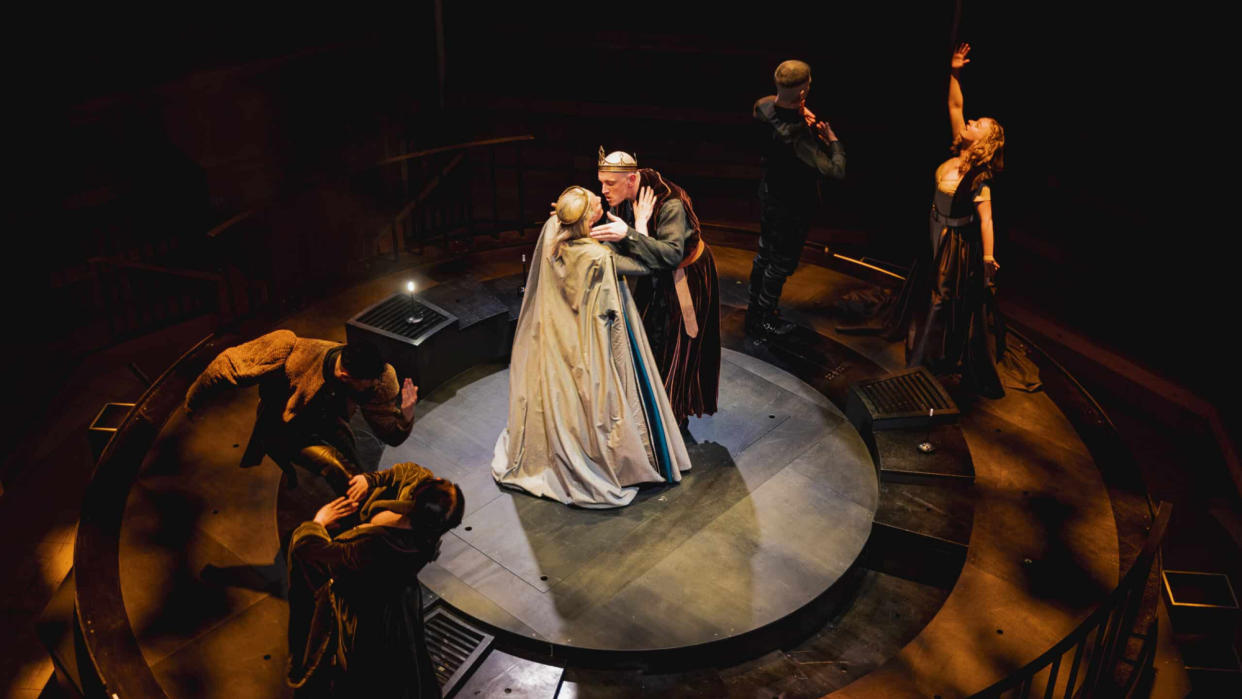Richard, My Richard: Philippa Gregory's 'nuanced portrait' of Richard III is heavy on the history

- Oops!Something went wrong.Please try again later.
- Oops!Something went wrong.Please try again later.
- Oops!Something went wrong.Please try again later.
In her first play, historical novelist Philippa Gregory "seeks to offer a nuanced portrait of the last Plantagenet king", in contrast to Shakespeare's "depiction of a deformed outsider who settles on evil as the most effective way of achieving the crown".
Shakespeare's plays have, of course, made a "huge impact on contemporary views of history", said The Times, and until recently it was "impossible to detach the real-life figure of Richard III from the playwright's 'foul bunch-back'd toad'". Gregory's Richard, played by Kyle Rowe, is "mercifully" freed from the "distastefully demonic hunched back", said The Telegraph.
'Pivotal roles' for women
As you'd expect from "an author who has often tried to restore agency to the women of England's royal history", said The Telegraph, "Richard, My Richard" seeks to "bring centre stage important female players in Richard's story", including Anne Neville, his "ill-fated wife", and Elizabeth Woodville, queen of the previous king, Edward IV, Richard's brother.
The "renowned" writer "gives pivotal roles to female characters", said The Guardian, all scheming "as ruthlessly as the men", while the princes' mother (Jennifer Matter) and sister (Mary Savage) practise witchcraft against their enemies.
'Structural problem'
"Richard, My Richard" features the "interesting conceptual thread" of the king debating with a character called History, who carries a "vast white tome" filled with everything currently known about the monarch, said WhatsOnStage.
This setting the record straight "generates much of the play's humour", said The Times, while simultaneously "exposing the vagaries of historical mythmaking". Upon being told that Richard's older brother Edward "probably died from overeating salmon", History asks: "What am I meant to do with facts like that?"
Gregory is certainly devoted to historical fact and her "voluminous" Wars of the Roses research has been "brought very substantially to the table" in this drama, said The Telegraph. But the History character creates "something of a structural problem".
The play "fails to achieve the necessary sense of pace and rhythm" and "too often, the dialogue of the historical characters serves not to drive the narrative forward, but to offer historical context".
In her bid to tackle "so many figures and events" in a play that is just two and a quarter hours long, "you feel the author might have bitten off a little more than she can chew".
Shakespeare North Playhouse, Prescot (0151-433 7156) until 30 March, then Theatre Royal, Bury St Edmunds (01284 769505), 11-27 April.

